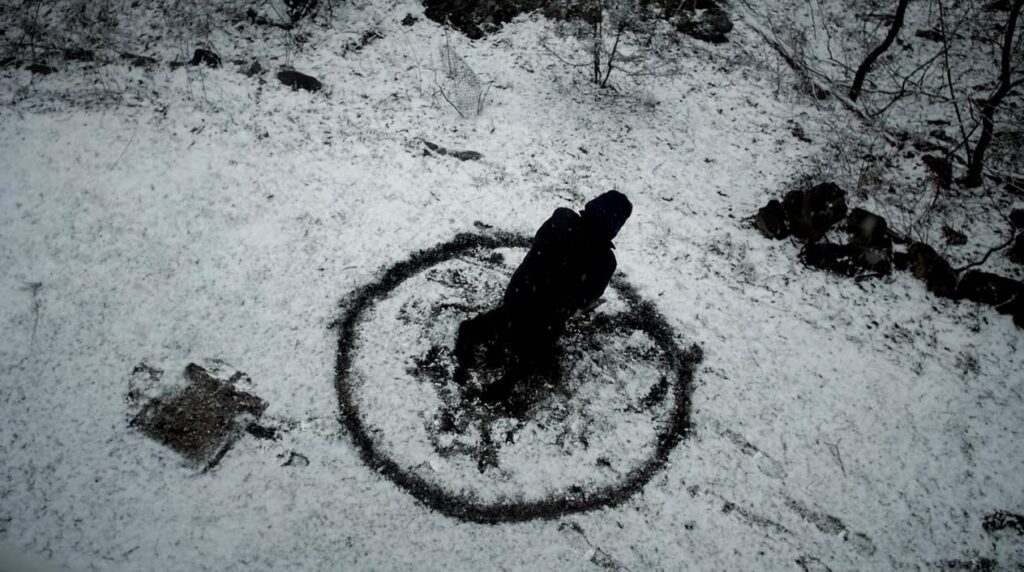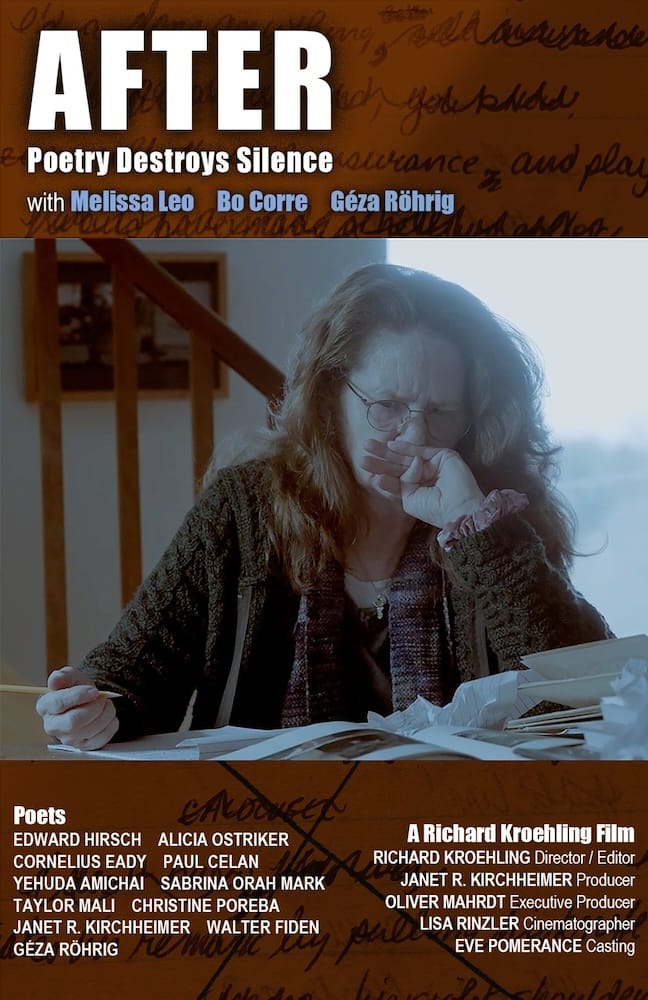I am proud to have served on the Board of Advisors to the film,
After: Poetry Destroys Silence.
For Distribution / Worldsales / Press / Festivals
Oliver Mahrdt: Oliver.mahrdt@gmail.com
All other requests to:
info@after.film
After: Poetry Destroys Silence is a deep dive into the creative responsibility of writers when faced with catastrophe and genocide. Do they bury their heads in the sand or do they reach out to the world with their creative gift.
AFTER (with film poster)
Poetry Destroys Silence
85 Minutes, Color and B&W
The first of its kind, where poetry and cinema combine and transcend, AFTER is an exploration of poetry written about the Shoah. Contemporary poets respond to the Holocaust and talk about the importance and necessity for poetry in a world that still grapples with genocide.
Rather than seeing the devastation, AFTER shows how poets respond to catastrophe and write in its aftermath. The film is ultimately about human resiliency, the power and courage to forge new lives, and the value of poetry in looking to the past to help create a better future.
Weaving a narrative, each poem has its own story, main character(s), and point of view, each acting as a short island with the entire film. AFTER also interlaces sequences of music, archival footage, personal photographs, and documents. The power of the words, performances, commentary, cinematic interpretations, sounds, and silences bring the poems to life on screen, offering a modern chronicle of poets examining history and the current day.
As survivors leave us each day, their voices live inside the poems we include in AFTER. One poet speaks the line, her father, a survivor, told her, “Home is anywhere they let you in.” The film serves as both a model and a warning for an increasingly divided and violent planet.
Director’s Vision

“I have always felt a connection between the power of the moving image and the dynamic internality of poetic language. Seeing it in the works of Tarkovsky and Godard, AFTER is based on the idea that artmaking has a responsibility to look into the abyss and address it, so that catastrophe becomes a kind of starting point. Cinema and the spoken word combine and even transcend in AFTER with performances, evocative images, narrative events, and sound design. The film serves as a cautionary notice and lyrical exploration, asking what it means to create in the aftermath of the Shoah.
A profound moment in AFTER is when Géza Röhrig talks about walking through a darkened barracks in Auschwitz and says, ‘This is what WE do….’. To me, he was not talking only about what the Nazis did, but what humanity is capable of. It is a generous and astonishing moment. Broadening the scope and tone of the film, I explore the nature of the human struggle, one burdened by existential threats on many sides and yet filled with astonishing possibilities and promise. I believe that poetic language and the subjective creative act is what might save us from the materialist age we live in.” –
Richard Kroehling, Director
